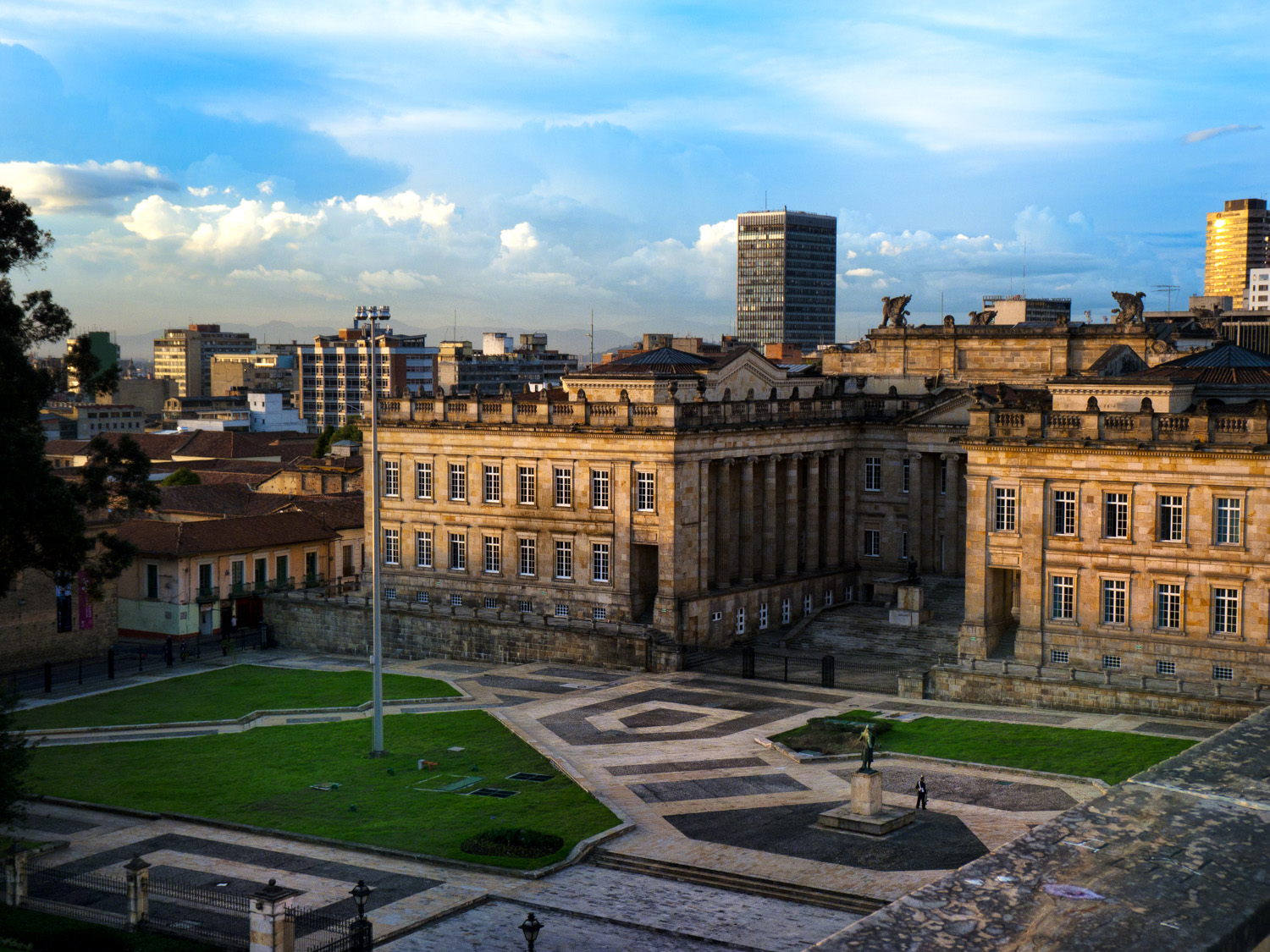Political situation Great challenges for the government and society
Government building in Colombia's capital Bogotá
In the presidential elections of June 2018, Iván Duque, a centre-right politician, became Santos' successor. During the election campaign, he presented himself as an opponent to the peace deal. After he was elected, he adopted a less critical stance. As he lacked a stable majority in Congress, there were very few bills (regarding electoral legislation, judicial reform and anti-corruption) that Duque was able to get accepted by parliament. Throughout his presidency, society remained divided over the peace process and over necessary reforms. There were – partly massive – protests and violent clashes, especially in 2021, in which a number of people were killed.
In Colombia, the term of the president is limited to four years. In the presidential elections in June 2022, former guerrilla member Gustavo Petro was elected Colombia's first leftist president. He assumed office on 7 August 2022. His Vice President, Francia Márquez, is the first Afro-Colombian to hold this office.
Petro has stated that implementing the peace agreement is his political priority. But his goals also include progressive environmental and climate policies and the improvement of the situation of women in Colombia.
Difficult transitional justice process
Further implementation of the comprehensive peace deal, which also addresses the causes of the armed conflict and provides for victim compensation, is an ambitious endeavour. It requires not only strong political commitment on the part of the government and civil society but also financial resources that run into billions.
Transitional justice mechanism
The agreement also provides for the establishment of a special court (Jurisdicción Especial para la Paz, JEP) to address the crimes committed by rebels and government forces during the armed conflict. The JEP began its work in early 2018. Its task is to address the armed conflict through a judicial process. Its focus is on the victims, and its work is geared towards enabling them to assert their rights to the greatest possible extent. The JEP's role thus goes far beyond that of a purely judicial body to address the armed conflict. The institution is of key importance for the success of the peace process and has already achieved some significant progress.
Truth Commission
Another important institution in the peace process is the Truth Commission, which presented its final report in mid-2022. For that report, it had recorded more than 26,000 statements and held numerous public hearings. The report presents many voices from various groups within society – victims, social organisations, perpetrators, civil servants, businesspeople, former presidents and many others.
It concludes that in the course of the protracted internal conflict in Colombia, some 450,000 people were killed, nearly 122,000 Colombians “disappeared”, 55,700 people were kidnapped and 7.6 million became internally displaced. 80 per cent of all victims were civilians. More than 17,000 children were forcibly recruited. Some 6.6 million hectares of agricultural land was unlawfully expropriated.
The BMZ supports the work of both of these peace institutions.
Security situation
There continues to be a great deal of violence, which is directed, among others, against women and men who are active in community councils, human rights groups and trade unions, and against social leaders and journalists. This violence continues to be an unresolved challenge for Colombia, as the country had, under the Duque Administration (2018–2022), not sufficiently managed to set up state institutions to fill the power vacuum that emerged in rural regions after the withdrawal of FARC. This constitutes a great challenge for the new government under President Petro, which it has so far been unable to resolve.
No peace agreement has been concluded yet with the country's second-largest guerrilla group, the ELN (Ejército de Liberación Nacional). President Petro is engaged in negotiations with the ELN, but progress has been slow so far.
As at: 25/06/2024
